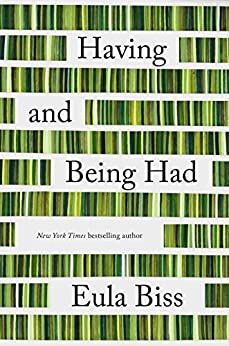More on this book
Community
Kindle Notes & Highlights
IKEA, the third largest consumer of wood in the world, has made furniture into something that gets used up.
consumption, which was once the name for a wasting disease, and is now the word anthropologists use for almost everything we do outside of work—eating, shopping, reading, listening to music.
“Killing wealth” is what the Haida people of the Pacific Northwest called their potlatch feasts. At these feasts, rank was established by how much a person could give away.
The Landlord’s Game, the game that became Monopoly, was designed in the early 1900s to expose the problems with an economic system in which property owners “win” by impoverishing renters.
Most of the mobility in the US happens within the middle classes, where people move up and down by gradations, while the poor tend to stay poor and the rich tend to stay rich.
If I had a better eye for class, I would have seen that I was surrounded by people subsisting on credit, living precariously and passing as middle class. Credit creates the illusion of equality, in that we can all buy the same things on credit, but we can’t all pay the debt back.
Witches were old women who could no longer produce children, midwives who facilitated birth control, childless women who remained unproductive, loose women who refused to be held as property, and prostitutes who sold themselves. Witches were, notably, poor. Among their recorded crimes were cursing the people who refused them food.
A woman, under capitalism, was no longer considered dangerous—she was helpless.
The rich of the city wanted to believe that the poor made them unsafe, not the other way around.
I don’t see much evidence that what anyone gets for their work has anything to do with what they deserve.
The idea that unions are for people in bad jobs and that people in good jobs don’t need to negotiate the terms of their service depends on the belief that good jobs are inherently good and can’t be made bad, or more menial.
“If Amazon’s 575,000 total employees owned the same proportion of their employer’s stock as the Sears workers did in the 1950s, they would each own shares worth $381,000,” write Nelson Schwartz and Michael Corkery.
No matter how much you care about the world, no matter how conscious you are, the best predictor of your impact on the environment is your income.
I realize with surprise that Scooby-Doo is all about capitalism. Every ghost, every mummy, every vampire turns out, in the end, to be someone trying to get rich.


